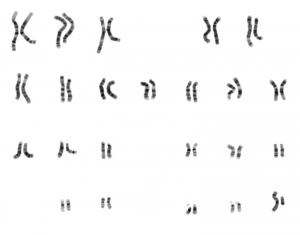* NOTE: The information provided below has been generalized by the website’s author based upon research of the ABGC-accredited programs (Canada and the US) done in 2012. The author is not responsible if the information changes from the time of this writing. Be sure to double-check all information before applying.
Application Requirements
Generally, all programs require the submission of post-secondary transcripts, Graduate Record Examination (GRE) scores (for American graduate schools), a resume/CV, a personal statement, and letters of recommendation.
Official transcripts from all post-secondary institutions attended must be submitted. This includes any spring/summer courses completed at a different institution and study-abroad host institutions as well. Typically, official transcripts must be sent directly from the institution. However, most programs will allow students to personally mail their transcripts, as long as it is enclosed in a separate sealed envelope that has been signed or stamped by the university administration. Select programs also require multiple copies of the transcript(s) to be sent. Be advised, some graduate schools state that they require all international applicants to have their transcripts evaluated by an external agency, such as World Education Services (WES). This typically does not include international applicants from Canada, who attended an institution taught in English with transcripts reported in English. However, this should be doubled-checked with the specific program’s admissions office.
With regards to grade point average (GPA), most programs consider a cumulative score; however, select programs will use just the last 60 credits on the transcript (equivalent to the last 2 years) to calculate the applicant’s GPA. Usually, genetic counselling programs have a minimum GPA of 3.0; however, some programs do not have an official minimum GPA. The GPA of those accepted is commonly around a 3.5, but this varies between specific
American graduate schools require students to submit their Graduate Records Examination (GRE) scores upon application. Genetic counselling programs only require the General GRE test scores, no subject specific tests. Generally, GRE scores at or above the 60th – 70th percentile rank are considered competitive.
The personal statement and resume/CV are the components of the application where students can best express their personality, accomplishments, and interest in the genetic counselling field. Each program will specify their letter requirements and restrictions.
The following are some examples of what could be included in the personal statement:
- Describe your interest in the field of genetic counselling
- The experience or knowledge that led you to pursue a career in genetic counselling
- The personal skills that you would bring to the program
- Reasons for selecting that specific school/program
* Be advised, these statement topics are only examples gathered from various program websites. Each program will have their own requirements for personal statements. Be sure to check these requirements before submitting your application.
Additionally, letters of recommendation must be provided on the applicant’s behalf. Most programs ask for three to four letters, one of which is typically from an academic reference. Other appropriate references would be supervisors from research projects, independent studies, internships, or advocacy experiences. Programs with online application forms often have an electronic system that allows the school to contact each of your references by email to request a recommendation letter, which can then also be submitted online.
Applications are typically due between December and February, prior to the Fall start of the graduate program. This varies widely between the different programs. Prospective applicants should consider these dates far in advance.
Select applicants are asked to attend an interview at the school. Interviews are typically done in February and March, depending on the program. Often it is a two-day event, allowing the interviewees opportunities to meet the faculty and current students.
The Competitive Edge
Acceptance into a genetic counselling graduate program is highly competitive. It is advantageous for applicants to build up certain activities/experiences that will make them more desirable candidates for graduate school, and potentially increase the chances of being accepted. This includes research/laboratory experience, direct exposure to the genetic counselling profession, experience with individuals with disabilities or chronic illness, volunteer/study abroad experiences, teaching experience, and fluency in multiple languages (especially Spanish or French).
Graduate school admissions committees are looking at more than just the GPA and GRE scores — they want candidates who are well-rounded and have taken the time and effort to seek diverse experiences relating to genetic counselling.
Acceptance Rates
Programs receive approximately 80 – 125 applications per year. The number of students accepted is dependent upon specific program capacity; this can range from 3 to 25 new students per year. The universal notification date for all American Board of Genetic Counseling (ABGC)-accredited programs (as of 2012) is usually at the end of April or beginning of May. Some individuals may be placed on wait lists, which can quickly change as students accept and decline their program acceptance offers.


